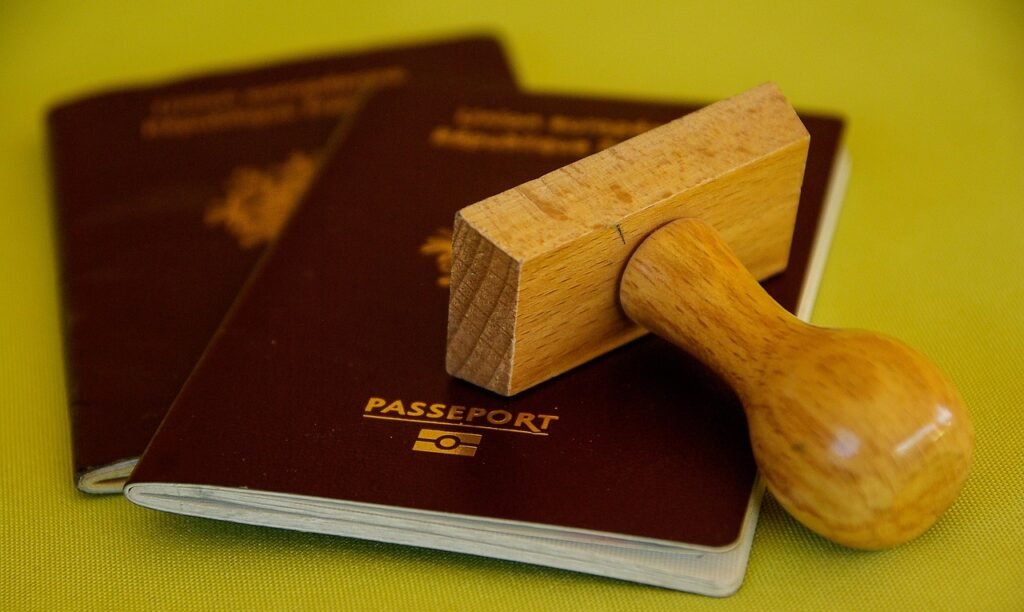Dual citizenship means holding passports from two (or more) countries at once. It’s increasingly popular for greater travel freedom, business opportunities, and access to better healthcare or education.
Many countries, including Turkey, embrace this flexible status—making it a smart choice for global citizens.
Straddling two continents, Turkey blends European and Asian influences, boasting a vibrant culture, a dynamic economy, and lucrative opportunities for investors and expats alike.
But does Turkey allow dual citizenship?
The answer is yes! Turkey permits dual or multiple citizenships, making it an appealing option for expats, investors, and those with Turkish heritage.
In this guide, we’ll explore the benefits of Turkish dual citizenship, including visa-free travel, business advantages, and property ownership rights. We’ll also break down how to get dual citizenship in Turkey, whether through ancestry, marriage, or the popular Turkey citizenship by investment program, which grants passports in as little as 3-6 months.
Whether you’re seeking a second passport or stronger ties to Turkey, this guide covers all the key details for 2025. Let’s dive in!
Does Turkey Allow Dual Citizenship?

Under Turkish Citizenship Law (No. 5901), individuals can hold Turkish citizenship alongside another nationality without needing to renounce their original citizenship, provided the other country also permits dual nationality. Foreign nationals can acquire Turkish citizenship by various means—such as descent, marriage, naturalization, or investment—while retaining their original citizenship if permitted by their home country.
For example, dual citizenship between Turkey and the USA is allowed, with both countries recognizing the status and requiring use of their respective passports for entry and exit. Turkish dual citizens enjoy full civil, political, and social rights in Turkey, including access to healthcare and the ability to own property, but they may have obligations such as taxation and possible military service depending on their residency and age.
Turkey also has a popular citizenship-by-investment program that allows investors to obtain citizenship in 3-6 months without residency requirements, further facilitating dual citizenship for global investors.
Overall, dual citizenship in Turkey provides travel, business, and healthcare benefits, and the country supports proper registration of dual nationality with its authorities to formalize the status.
Turkey is among the nearly half of countries worldwide that permit dual citizenship, making it an attractive option for those seeking multiple nationalities.
Benefits of Dual Citizenship in Turkey

The benefits of dual citizenship in Turkey include enhanced global mobility with visa-free or visa-on-arrival access to over 110 countries, including long-term US tourist visas and Schengen visas, which facilitate easier international travel for personal and business purposes.
Dual citizens also gain full rights and access to Turkey’s public healthcare system and education, which are affordable and comprehensive, along with the ability to own property freely across the country.
Economic and business opportunities are significant advantages as Turkey’s strategic location serves as a gateway between Europe, Asia, and the Middle East, offering expansive markets and investment potential in sectors like real estate, business, and government bonds, especially through the citizenship-by-investment program.
Dual citizens can benefit from Turkey’s dynamic economy and favorable real estate market in cities like Istanbul, Bodrum, and Antalya.
Moreover, dual citizenship in Turkey supports long-term wealth preservation and intergenerational advantages due to favorable inheritance laws and tax treaties that help avoid double taxation, making it attractive for estate and asset management. It also offers security and legal protections for families, enabling access to social benefits and fostering cultural integration for expatriates.
In summary, dual citizenship in Turkey provides comprehensive benefits such as global travel freedom, business and investment opportunities, access to healthcare and education, property ownership, and long-term financial and familial security.
The table below is given so that you can easily navigate through the benefits of dual citizenship in Turkey.
| Benefit | Description |
| Visa-Free Travel | Access to 110+ countries, including Japan, Singapore, and parts of Latin America. |
| Business Opportunities | Easier company formation, tax advantages, and access to EU & Middle East markets. |
| Property Ownership | No restrictions—foreign dual citizens can buy real estate freely in Turkey. |
| Fast Processing | Citizenship by investment can be obtained in 3-6 months (one of the fastest in the world). |
| Family Inclusion | Spouses and children under 18 can often be included in the application. |
| No Military Obligation | Dual citizens not residing in Turkey may be exempt from mandatory military service. |
| Path to EU Access | Potential long-term advantage if Turkey progresses toward EU membership. |
How to Obtain Turkish Dual Citizenship

Eligibility for Turkish dual citizenship varies depending on the route—whether through family ties, residency, marriage, or financial investment.
- By Descent (Jus Sanguinis): If you are born to at least one Turkish parent, you automatically qualify for Turkish citizenship. Documentation proving lineage such as birth certificates and family registries is required.
- Through Marriage: You may qualify if you’ve been married to a Turkish national for three years or more.
- By Naturalization: This generally requires living in Turkey continuously for at least five years, demonstrating financial stability, integration, and some basic Turkish language skills. Besides personal documents, you need residence permits, work permits, and police clearance certificates from your home and any other country you have lived in.
- By Investment (Citizenship by Investment Program): The fastest and increasingly popular route, requiring a minimum investment—such as $400,000 in real estate or a substantial financial deposit in a Turkish bank. This option has no residency requirement and takes approximately 3-6 months for processing.
Related post: What is the easiest way to get Turkish Citizenship?
Here are also some additional key points you need to consider.
- Turkey recognizes dual nationality, but always check your country’s laws to ensure they allow it too.
- Upon receiving dual citizenship, you’re required to declare it to Turkish officials for civil registry updates.
- Applicants must prepare standard documents such as a valid passport, birth certificate, biometric photos, police clearance, proof of residence, and investment documentation if applicable. All documents must be legalized (apostilled) and translated into Turkish by a sworn translator.
- Holders of dual citizenship in Turkey maintain all citizen privileges, such as buying property, accessing healthcare, and starting businesses.
To obtain Turkish dual citizenship, select the appropriate pathway, compile the required legal and personal documents as specified, fulfill residency or investment requirements if applicable, and submit your application to Turkish authorities or consulates for processing. The citizenship by investment route is notably the fastest and does not require permanent residency.
Required Documents for Dual Citizenship in Turkey

The required documents for obtaining dual citizenship in Turkey depend on the pathway (descent, investment, marriage, naturalization) but generally include the following:
- Passport or valid ID card of the applicant.
- Birth certificate (original and translated into Turkish, notarized).
- Proof of legal residency or marriage certificate, if applying through naturalization or marriage.
- Financial documents, such as bank statements, income statements, or proof of investment for citizenship by investment.
- Clean criminal background certificate.
- Health reports and other personal status documents as needed.
- Documents proving Turkish lineage for citizenship by descent (e.g., parents’ Turkish passports or citizenship documents).
- Biometric photos and completed application forms.
- All foreign documents must be officially translated into Turkish and notarized.
- In some cases, applicants may undergo interviews or provide additional documentation depending on the application type.
For Investment Citizenship: Authorities verify the investment (minimum $400,000 in real estate or capital) alongside the above documentation. For naturalization, continuous residence proof for five years and language proficiency may be required.
Applications are submitted either locally at Turkish civil registry offices or via Turkish consulates abroad.
Additionally, dual citizens must notify Turkish authorities about acquiring additional nationality to ensure proper registration.
This list covers the essential documents typically required; specific cases might need additional paperwork based on personal circumstances and the citizenship route followed.
Potential Challenges & Considerations
The potential challenges and considerations for obtaining and holding Turkish dual citizenship in 2025 include:
Bureaucratic and Administrative Challenges
Despite legislative reforms aiming to streamline the process, some applicants experience bureaucratic red tape, inefficiencies, and poor inter-agency coordination, which can delay or complicate applications.
Political and Trust Issues
Among the Turkish diaspora, especially in Europe, there is growing distrust toward the Turkish government and skepticism about its policies. This political distrust leads many to hesitate or avoid reclaiming Turkish citizenship despite eligibility.
Military Service Obligations
Male dual citizens may be subject to mandatory military service in Turkey or face a substantial military service fee (noted around 6,000 euros), which deters some from applying or reclaiming citizenship.
Cost and Investment Requirements
The investment threshold for citizenship by investment has increased (e.g., $400,000 minimum real estate purchase) and requires holding investments for at least three years. Meeting the investment requirements involves navigating complex verification processes at added expense.
Legal and Taxation Complexities
Dual citizenship may involve double taxation risks, although Turkey has agreements with many countries to alleviate this. Still, proper legal and tax advice is recommended for dual nationals.
Documentation and Translation Accuracy
Applicants must provide officially translated and notarized documents, which requires careful attention to details and can slow down processing if errors occur.
Cultural and Social Considerations
Some second- or third-generation Turkish-origin individuals feel less connected to Turkey and question the benefits of citizenship, especially where their current residency already offers many rights without full citizenship obligations.
Notification Obligations
Turkish law requires dual citizens to notify Turkish authorities about acquiring other nationalities, which if neglected may cause legal complications.
Legal Changes and Policy Variations
Laws and policies can change, such as increased investment thresholds or documentation requirements, so staying updated is essential for applicants.
While Turkey allows and facilitates dual citizenship with multiple pathways, applicants should carefully consider administrative hurdles, political context, military duties, investment conditions, and legal obligations before proceeding. Proper preparation, legal advice, and awareness of ongoing legislative changes help mitigate these challenges.
Countries That Allow Dual Citizenship with Turkey

Countries that allow dual citizenship with Turkey include most nations that themselves permit dual nationality, as Turkey allows its citizens to hold multiple citizenships without requiring renunciation.
Based on the latest information in 2025, Turkey permits dual citizenship broadly, and dual nationals can hold Turkish citizenship alongside citizenship from a wide range of countries worldwide.
Some major countries that allow dual citizenship with Turkey are:
| Region | Examples of Countries Allowing Dual Citizenship with Turkey |
| Europe | Germany (since June 2024 multiple citizenship allowed), France, Italy, Ireland, United Kingdom, Spain, Portugal, Sweden, Switzerland, Netherlands (restrictions lifted in some cases) |
| North America | United States, Canada, Mexico |
| Latin America | Argentina, Brazil, Chile, Colombia, Peru, Uruguay |
| Caribbean | Antigua and Barbuda, Dominica, Grenada, St. Kitts and Nevis, St. Lucia |
| Africa | Nigeria, South Africa, Ghana, Kenya |
| Asia | Philippines, Pakistan (limited cases), Thailand, Lebanon, Israel, Syria |
| Oceania | Australia, New Zealand |
| Middle East | United Arab Emirates |
Turkey’s dual citizenship policy requires dual nationals to enter and leave Turkey using their Turkish passport, but it does not prevent use of the other passport for foreign travel. Military service obligations and notification to Turkish authorities about additional citizenships apply.
In short, Turkey allows dual citizenship in coordination with countries that themselves permit multiple nationality; over 100 countries worldwide—including many in Europe, the Americas, Africa, Asia, and Oceania—allow dual citizenship compatible with Turkish nationality.
Frequently Asked Questions (FAQs)
Q. Can I lose Turkish citizenship if I acquire another?
ANS: You won’t lose Turkish citizenship just by gaining another nationality. Turkey fully allows dual citizenship, so you can keep both without renouncing your Turkish passport.
Q. Do I need to serve in the Turkish military?
ANS: Only male under age 38 may have to serve in the military. But there are some conditions that if you fulfil then you won’t need to serve in the Turkey military.
Click here for more info
Q. Can I vote in Turkish elections with dual citizenship?
ANS: With a Turkish passport you surely can vote in the Turkish election. All dual citizens of Turkey will have this chance.
Q. How long does the process take?
ANS: On average 3-6 months
Conclusion
Turkey fully allows dual citizenship—you can keep your original passport while enjoying the benefits of Turkish nationality. Don’t forget to report any additional citizenship to the proper authorities. While most face no issues, male citizens should check military service rules based on age and prior service.
Whether for travel, business, or investment, holding Turkish dual citizenship offers flexibility and opportunity—just follow the legal steps and stay informed
- Ready to apply for Turkish dual citizenship? Consult an expert today!
- Want more guides on citizenship? Subscribe to our newsletter!


One response to “Does Turkey Allow Dual Citizenship? Everything You Need to Know in 2025”
[…] Is dual citizenship allowed in Turkey?→ Yes, Turkey allows dual or multiple citizenship. […]